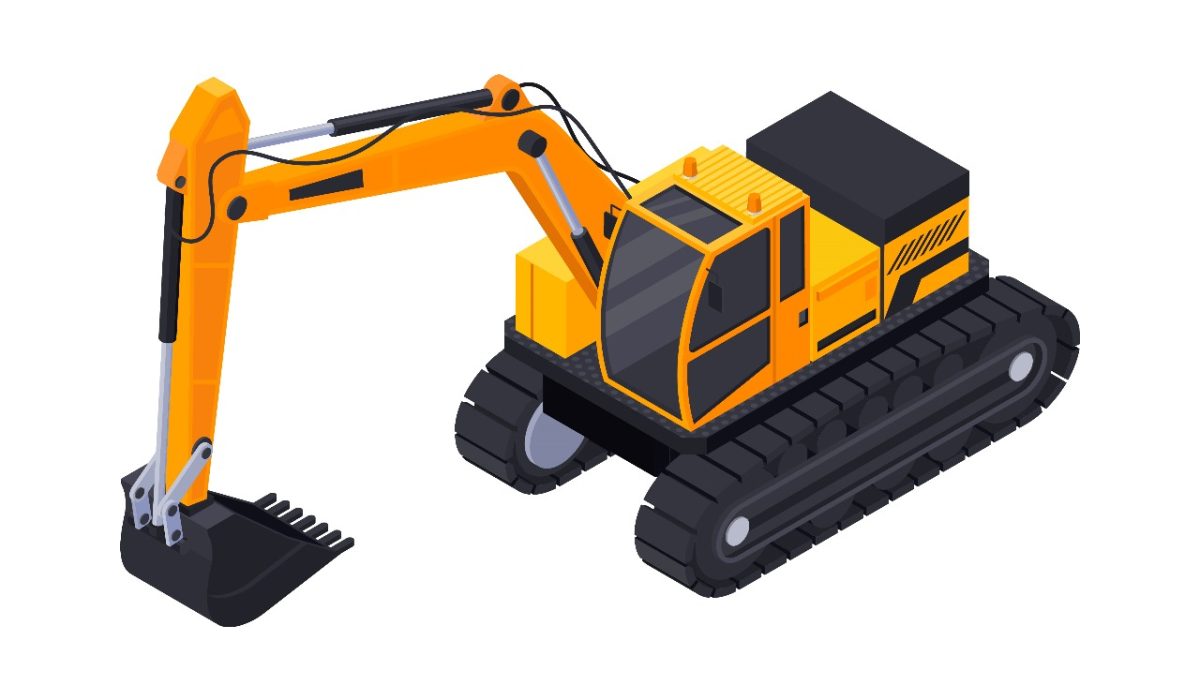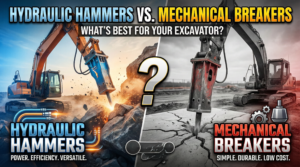The construction and landscaping industries are at a pivotal crossroads with the increasing availability of electric equipment. As the world becomes more environmentally conscious, the shift toward electric vehicles and machinery is becoming more pronounced. Mini excavators, a staple in residential and commercial projects, are now at the forefront of this transition. In this blog post, we’ll delve into the world of Electric vs Non Electric Mini Excavators, helping you make an informed decision for your next project.
Understanding Electric Mini Excavators
Electric mini excavators operate on lithium-ion batteries, powering the hydraulics and attachments necessary for precise and efficient work. They convert electrical energy into mechanical energy, driving the hydraulic pumps that control the machine’s arms and buckets. This technology has opened up new possibilities for quieter, emission-free operation in sensitive environments.
Applications Where Electric Excavators Shine
Electric mini excavators excel in settings where noise and emissions are of concern. Zoos, indoor demolition sites, hospitals, and school zones are prime examples where these machines offer significant advantages. Their quiet operation and lack of exhaust fumes make them ideal for work in populated or enclosed areas where disruption must be minimized.
Pros and Cons of Electric Mini Excavators
The benefits of electric mini excavators include their silent operation, reduced environmental impact, and alignment with stringent emissions regulations. However, their current limitations include shorter battery life, with most models offering 4 to 5 hours of operation before requiring a lengthy recharge. Additionally, the lack of widespread charging infrastructure can pose challenges for projects in remote locations. While rental options are growing, availability may be limited compared to their diesel counterparts.
The State of Non-Electric (Diesel) Mini Excavators
Diesel mini excavators remain a popular choice for contractors due to their versatility and established presence in the market. They use gas-powered engines to operate hydraulic systems that control the excavator’s functions.
Applications Suited for Diesel Excavators
Diesel mini excavators are versatile workhorses capable of tackling a wide range of tasks, from land clearing to small demolitions and landscaping. They still dominate outdoor applications where their power and range are crucial, despite the fact that electric models have largely replaced them for indoor use.
Advantages and Disadvantages
The primary advantages of diesel mini excavators include their longer runtimes and broader range of specifications, making them suitable for more demanding tasks. However, the disadvantages are becoming more apparent as fuel costs rise and environmental regulations tighten. They are louder, produce more emissions, and generally have higher maintenance costs due to their more complex mechanical systems.
Electric vs Diesel: Performance and Efficiency
When it comes to performance, diesel mini excavators currently offer a wider range of options, from 1 to 10 tons, catering to diverse project needs. Electric models are catching up but are still limited in size and power. Nevertheless, for smaller scale projects, electric excavators can match their diesel counterparts in terms of specifications.
Environmental Impact
Electric excavators have a clear advantage in terms of environmental impact. With zero emissions during operation, they contribute to reducing the overall carbon footprint of construction activities. As the industry seeks to lower its share of global emissions, electric equipment plays a vital role in this effort.
Operating Costs and Maintenance
Electric mini excavators boast lower operating costs due to reduced fuel consumption and simpler mechanical designs, which translate into fewer maintenance requirements. However, the higher upfront costs and potential expenses related to battery repair or replacement must be considered.
Noise and Vibration Levels
In residential areas or projects with strict noise regulations, electric mini excavators offer a significant advantage. Their quieter operation and lower vibration levels can make a critical difference in meeting regulatory requirements and maintaining good community relations.
Choosing the Right Mini Excavator for Your Project
When selecting between electric and diesel mini excavators, consider factors such as the project environment, required specifications, cost considerations, and equipment availability. Electric models are ideal for indoor work or in noise-sensitive areas, while diesel models offer more power and flexibility for a broader range of outdoor applications.
Conclusion
When choosing between electric and diesel mini excavators, think about where you’ll be working, what demands your project has, budget constraints, and what machines you can actually get your hands on. Electric excavators are top-notch for internationally saber vos construction zones. Diesel machines—if you need extra oomph and versatility—can deliver, especially outdoors.
Electric excavators are poised to push the envelope for more how construction machinery should evolve with benefits and operation costing leads immensely credited their favor. Yet, as of now, these might cheek limitations sans widespread spreading diversity in power options reaching market. Alternatively, diesel-manufactured ones serve widely tested trust placed several sort of task requirements ceaselessly. Your final pick faces squarely on belting down these factors plated beforehand best catering job in question.





